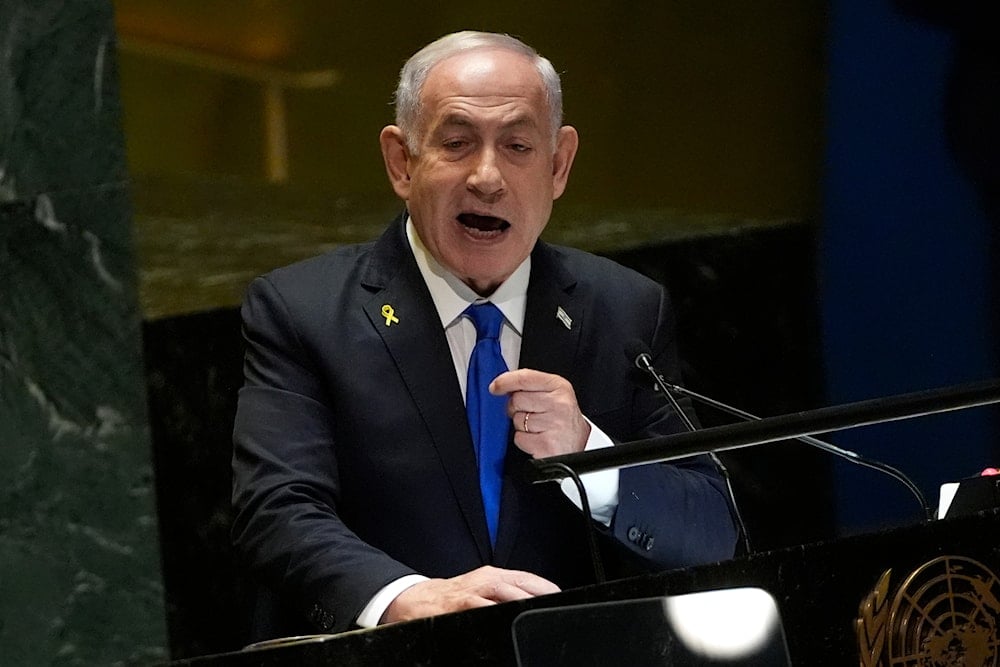'Israel'-KSA normalization, once so close, 'for now out of reach': CNN
As a potential normalization agreement between Saudi Arabia and the Israeli occupation drew closer, Netanyahu's "controversial" performance during the ongoing war pushed the chances of an agreement far.
-

Israeli Prime Minister Benjamin Netanyahu addresses the 79th session of the United Nations General Assembly, on September 27, 2024. (AP)
A report by CNN on October 7 highlighted that “Israel”, along with its adversaries and allies, is witnessing a significant transformation in the region's diplomatic and political landscape. The changes following October 7 are unavoidable, yet, in their current chaotic state, they could still be mitigated. The toll on civilians continues to rise, highlighting how diplomacy could have played a crucial role in saving lives.
A year ago, it appeared that the political landscape of the region was on the brink of change. Driven by US incentives, Saudi Arabia and “Israel” appeared closer than ever to achieving a normalization agreement. But that was pushed after Hamas launched Operation Al-Aqsa Flood.
For the first time, many Israelis came to the unsettling realization that their entity was no longer the “secure refuge" they had always perceived it to be. The notion that despite any prejudice or persecution they might encounter globally, “Israel” would serve as their safe zone was fundamentally shattered.
Netanyahu loses control and everything else
According to CNN, Israeli Prime Minister Benjamin Netanyahu is focusing on his political survival, partly to deflect blame for failing to prevent Hamas' operations. His aggressive tactics are challenging established norms and red lines that previously restrained regional escalation, according to the report.
Furthermore, the relationship between the occupation and the White House under President Joe Biden is at its lowest point in a generation. According to authorities in Gaza, nearly 42,000 Palestinians have been killed, with many casualties attributed to US bombs and bullets used by “Israel”.
The killings and arrests of Palestinians, including some US citizens, by the IOF in the occupied West Bank are becoming increasingly untenable for many of “Israel's” European allies. After a year of inaction, these allies are starting to limit their arms supplies to “Israel”.
However, the pressures on “Israel” to halt its aggression on the Strip and Lebanon seem to be futile.
Key Gulf state and ‘Israel’
According to the report, potential regional allies like Saudi Arabia are now demanding tougher diplomatic conditions from Netanyahu. The normalization that seemed likely between “Israel” and the leading Gulf state before October 7 is now out of reach, as Netanyahu is viewed as too controversial and unreliable for such an agreement.
It was a deal that could have provided Biden with a notable legacy, offered Saudi Crown Prince Mohammed Bin Salman the legitimacy and security he desires, and given Netanyahu a buffer against long-standing hostility, according to the report.
Saudi Arabia's current demand is for an "irreversible path" toward a Palestinian state, a request that is deeply opposed by Netanyahu and his far-right cabinet and has become even more unacceptable to many in “Israel” following October 7.
According to the report, the normalization talks are stalled, and uncertainty has become “the new norm."

 3 Min Read
3 Min Read








